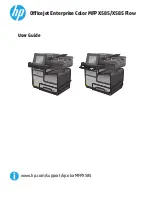
2 - 1
It is most important that you read and understand this
information and the publications referred to. Make sure
all your colleagues who are concerned with lubricants
read it too.
Hygiene
JCB lubricants are not a health risk when used properly for
their intended purposes.
However, excessive or prolonged skin contact can remove
the natural fats from your skin, causing dryness and
irritation.
Low viscosity oils are more likely to do this, so take special
care when handling used oils, which might be diluted with
fuel contamination.
Whenever you are handling oil products you should maintain
good standards of care and personal and plant hygiene. For
details of these precautions we advise you to read the
relevant publications issued by your local health authority,
plus the following.
Storage
Always keep lubricants out of the reach of children.
Never store lubricants in open or unlabelled containers.
Waste Disposal
All waste products should be disposed of in accordance
with all the relevant regulations.
The collection and disposal of used oil should be in
accordance with any local regulations. Never pour used
engine oil into sewers, drains or on the ground.
Handling
New Oil.
There are no special precautions needed for the handling or
use of new oil, beside the normal care and hygiene
practices.
Used Oil.
Used engine crankcase lubricants contain harmful
contaminants.
Here are precautions to protect your health when handling
used engine oil:
1
Avoid prolonged, excessive or repeated skin contact
with used oil.
2
Apply a barrier cream to the skin before handling used
oil.
3
Note the following when removing engine oil from skin:
a
Wash your skin thoroughly with soap and water.
b
Using a nail brush will help.
c
Use special hand cleansers to help clean dirty
hands.
d
Never use petrol, diesel fuel, or paraffin for washing.
4
Avoid skin contact with oil soaked clothing.
5
Don't keep oily rags in pockets.
6
Wash dirty clothing before re-use.
7
Throw away oil-soaked shoes.
First Aid - Oil
Eyes.
In the case of eye contact, flush with water for 15 minutes. If
irritation persists, get medical attention.
Swallowing.
If oil is swallowed do not induce vomiting. Get medical
advice.
Skin.
In the case of excessive skin contact, wash with soap and
water.
Spillage
Absorb on sand or a locally approved brand of absorbent
granules. Scrape up and remove to a chemical disposal
area.
Fires
Extinguish with carbon dioxide, dry chemical or foam. Fire-
fighters should use self-contained breathing apparatus.
Section 3
9803/3280
Section 3
2 - 1
Issue 1
Lubricants - Health and Safety
















































